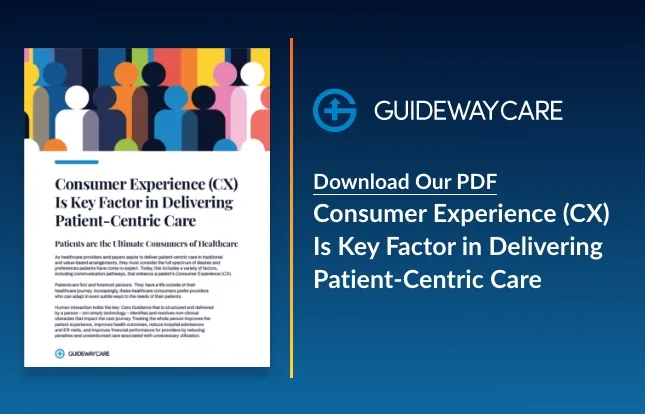Why Emotional Support is Crucial in Oncology Navigation Services for Cancer Patients

Emotional support is crucial in oncology navigation services because it helps cancer patients handle the emotional distress of their diagnosis and treatment. Oncology navigators provide personalized care that addresses both emotional and practical needs. This blog will explain why emotional support is crucial in oncology navigation services and how it improves patients’ mental health, aids in treatment adherence, and enhances quality of life.
Key Takeaways
- Emotional support is critical for cancer patients as it helps alleviate anxiety, depression, and feelings of isolation during a challenging diagnosis and treatment process.
- Oncology navigation services provide vital emotional support through trained patient navigators who address both the emotional and practical needs of patients, enhancing their coping mechanisms and treatment adherence.
- Building a comprehensive support system that includes healthcare professionals, family, and community resources is essential for improving the overall quality of life and well-being of cancer patients and their families.
The Emotional Challenges of a Cancer Diagnosis

When an individual is confronted with a cancer diagnosis, it can deeply disrupt their existence. That pronouncement triggers an avalanche of emotional turmoil, including shock, anger, and denial. As they navigate through their cancer journey, these intense emotions not only momentarily unsettle them but may continue to persistently overshadow every dimension of their lives.
Dealing with the aftermath of being told one has cancer involves coping with overwhelming distress that takes on many forms. The fear associated with thoughts about mortality gets intertwined with substantial disruptions in physical health, mental wellbeing, social relationships, and economic stability due to the illness itself as well as its treatment regimens. Symptoms like relentless fatigue frequently accompanying treatments Impair daily functioning for patients who are already struggling emotionally—often intensified by inadequate knowledge or access to necessary resources to manage this new reality.
The significant psychological toll experienced after receiving news of having cancer might lead some individuals down a path toward despair so deep that surrendering feels imminent without proper support systems in place. It is during these critical times that the presence and reinforcement from social networks become indispensable for helping patients cope effectively while navigating the complexities introduced by such life-altering conditions.
In order to help those facing these harrowing circumstances head-on, patient navigators step into play. Professionals dedicated solely to understanding and relieving the emotional hardships endured by individuals diagnosed with cancer facilitate ways through which they can confront barriers within this formidable phase successfully.
The Role of Oncology Navigation Services in Providing Emotional Support

Acknowledging the emotional upheaval that comes with a cancer diagnosis is crucial for securing appropriate support. Navigation services in oncology are designed to provide comprehensive emotional aid throughout a patient’s cancer journey, encompassing assistance from professionals like oncology social workers, psychologists, and trained patient navigators who cater to both practical necessities and the psychological demands of those battling cancer.
Integral to these services are patient navigators who guide individuals through their treatment process while closely tracking their mental and physical wellbeing. They lend an empathetic ear to patients’ concerns, give caring counsel, and connect them with resources aimed at assisting them in managing their diagnoses and treatments. By celebrating each milestone achieved during therapy—no matter how big or small—a navigator bolsters emotional care while inspiring hopefulness and determination via the benefits provided by navigation services.
These specialized navigators work tirelessly to overcome any obstacles that might interfere with accessing proper care—including financial constraints or logistical challenges—to ensure continuous quality treatment for patients. Patients are also empowered by navigators to share third-party information regarding cancer with treating oncologists. This fosters trustful interactions, leading to personalized advice tailored specifically for them.
The persistent provision of supportive companionship from these healthcare providers has been shown time and again through various studies to be effective in lowering stress levels significantly, which contributes positively towards enhancing overall health outcomes among affected individuals.
Benefits of Emotional Support in Cancer Care

Providing emotional support in the context of cancer care brings multiple significant advantages. It plays a vital role in lessening feelings of anxiety and depression, instilling hope and drive that are crucial for navigating through the journey with cancer. As an example, one patient experienced enhanced resilience and an improved standard of living after participating in a support group led by oncology navigators.
The presence of someone to accompany patients to their medical appointments can lead to better understanding and recall of information given during those visits while ensuring they receive the necessary emotional backing. Incorporating such psychological assistance within cancer treatment is associated with increased adherence to prescribed therapies as well as superior health outcomes. Indeed, supportive care strategies have shown promise for extending disease-free periods among survivors as well as bolstering immune system functions—both essential factors for maintaining robust health over time.
Granting access to these forms of compassionate care has been known not only to reduce lengths of hospitalization along with intensive care unit admissions but also contribute to cutting down on healthcare expenses overall. Emotional supports extend beyond direct benefits for patients. They lighten the load borne by both families and caregivers alike by cultivating an atmosphere rich in compassion and communal solidarity.
How Patient Navigators Provide Emotional Support
Navigators play a vital role in providing emotional support to those undergoing the cancer journey. They serve as pillars of reassurance, reducing the isolation and loneliness that can arise during treatment by offering consistent contact, which is deeply valuable for patients who may otherwise struggle with feelings of desertion or being overwhelmed.
Patient navigators specializing in oncology demystify complicated medical terminology associated with cancer diagnoses. Their guidance helps patients comprehend their condition and the available treatment options, leading to well-informed decision-making and reduced anxiety. This understanding empowers individuals facing cancer to be proactive participants in managing their health care.
Through these services, patient navigators furnish patients with coping mechanisms drawn from successful strategies employed by others undergoing similar treatments. By facilitating connections between patients and local support groups, they provide essential community links for shared experiences crucial to coping effectively. Combining emotional comfort with practical assistance ensures that navigators enhance both resilience and optimism throughout each stage of diagnosis and treatment for those battling cancer.
Building a Comprehensive Support System
Creating an all-encompassing support infrastructure is crucial for tackling the vast array of challenges faced by cancer patients and their families. Supportive care, which is grounded in evidence-based practices, customizes assistance to individuals and caregivers at every stage of their cancer journey—taking into account clinical, emotional, psychological, and financial aspects. This comprehensive method ensures that patients are provided with well-rounded care that fosters their overall wellbeing.
From the initial cancer diagnosis onward, it’s imperative to establish a continuum of support extending through treatment and into survivorship. Emotional distress often hampers a patient’s ability to share news about their condition. Hence, delegating this communication task to close family members or friends can be beneficial. Healthcare professionals also play an indispensable role in building social support networks that offer mental, physical, and economic help.
An effective support network consists not just of healthcare providers but also includes relatives, friends, and neighbors—who contribute practical aid alongside compassionate reassurance—to ensure no one has to face these trials alone. For example, a study found improved domestic dynamics amongst families who benefited from emotional guidance offered by navigators during such trying times.
Support mechanisms developed around the complex needs of those with cancer enhance timely access to necessary treatments while significantly improving life quality for both patients as well as their loved ones—as documented within professional forums like European cancer care—and underscored across our broader healthcare system.
Overcoming Barriers to Emotional Support
Individuals with cancer can often encounter substantial hurdles when trying to obtain emotional support, which may be due to a lack of adequate insurance coverage, challenges with transportation, or issues in communication. It’s crucial for these obstacles to be overcome so that consistent emotional support is available throughout the duration of their treatment.
Challenges such as difficulties in securing transport can severely hinder a patient’s ability to participate in therapeutic encounters or join support groups, which are critical for their mental wellbeing. By offering assistance in organizing travel needs, we provide essential practical aid that greatly enhances the standard of cancer care received by patients.
Surmounting these impediments effectively requires a collective effort from medical professionals, patient navigators, and supportive community networks. Such initiatives foster ongoing emotional support and elevate the entirety of the healthcare experience for those battling cancer. These actions not only lead to better outcomes during treatment but also play an integral role in narrowing gaps within cancer care accessibility and resource allocation.
The Importance of Continuous Emotional Support

The journey through cancer is fraught with emotional hurdles, and unwavering emotional support is pivotal in navigating these challenges. Playing an indispensable role, patient navigators offer sustained backing and access to essential resources that bolster the patient’s ability to manage their mental health effectively. This ongoing assistance can significantly enhance patient outcomes.
To those undergoing treatment for cancer, the provision of emotional support from their healthcare team is often deemed critical. It highlights the importance of a nurturing environment throughout the span of their care. The significance extends beyond medical staff. Caregivers are crucial in imparting enduring encouragement to patients even after treatments have concluded. Consistently evaluating and addressing a patient’s psychological necessities facilitates timely interventions with suitable support systems.
Embedding continuous emotional aid within all aspects of cancer therapy enables patients to tread through their experiences armed with resilience and optimism. Persistent reinforcement stands as an anchor for safeguarding mental health and wellbeing — this continuity not only enriches life quality but also positively influences treatment results.
To Conclude
In summary, emotional support is a critical component of oncology navigation services, offering patients the strength and resilience they need to navigate the challenges of cancer treatment. By addressing emotional wellbeing, fostering hope, and providing guidance, patient navigators play a vital role in improving the overall cancer care experience. A strong network of support that removes barriers to emotional care can significantly enhance a patient’s quality of life and the success of their treatment journey.
At Guideway Care, we are dedicated to reimagining the patient journey by providing compassionate and expert oncology care solutions. Our team of skilled patient navigators collaborates with healthcare providers to deliver personalized support, ensuring patients and their families feel empowered every step of the way. Learn more about how we can transform the cancer care experience for you and your loved ones by contacting us. Let’s navigate this journey together.
Frequently Asked Questions
1. What is a patient navigator?
A patient navigator is a trained healthcare professional who helps individuals with cancer navigate the complex and often overwhelming world of cancer treatment. They provide guidance, support, and resources to help patients and their families cope with the challenges of this illness.
2. How does having a strong support network benefit those dealing with cancer?
Having a robust support network can greatly improve the overall wellbeing of individuals contending with cancer. This includes emotional support, practical assistance, and access to important resources that may be difficult to obtain on one’s own. A strong support system can also increase treatment effectiveness and improve the quality of life for both patients and their loved ones.
3. Why is it important for healthcare professionals to provide encouragement to cancer patients?
Cancer patients often face a wide range of physical and emotional challenges, making it crucial for healthcare professionals to provide encouragement and support. This can help patients stay motivated and hopeful during their treatment journey, as well as improve their overall outlook on life. Encouragement from healthcare professionals can also help alleviate any feelings of isolation or fear that patients may experience, ultimately leading to better health outcomes.
Contact Us Today To Learn How We Can Help
"*" indicates required fields




